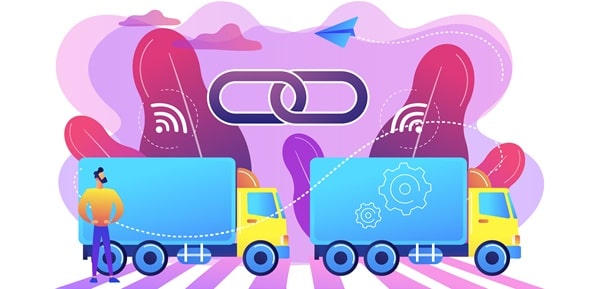The New Role of Insurance in India’s Commercial Vehicle Landscape
As India’s mobility sector transforms, commercial vehicle insurance is adapting to match. From taxis to electric trucks, insurers are improving their plans by using AI and digital tools to make insurance quicker, smarter, and more flexible.
The shift is clear – Insurance is no longer just protection but a business enabler for the future.

How is Commercial Vehicle Insurance Evolving in India?
As India’s transport landscape evolves, so does how we insure the vehicles that keep the economy moving. For instance, under commercial vehicle insurance, taxi insurance now addresses urban challenges like high traffic, accidents, and downtime.
Across the board, insurance is shifting from a basic requirement to a business advantage designed to support growth, reduce risks, and keep vehicles on the road longer.
● Custom Cover for Modern-Day Operators
Fleet operators, logistics firms, and independent drivers today work in fast-moving, tech-driven environments. With their rigid terms and flat-rate premiums, traditional insurance policies often fall short. The demand is now for flexible commercial vehicle insurance that aligns with businesses’ operations.
● Smart Tech is Changing the Game
AI and telematics are no longer words used for the future; they’re becoming part of everyday vehicle management. Insurers now offer smart commercial vehicle insurance policies where telematics devices track driver behaviour, routes, idle time, and fuel usage.
New Challenges Posed by Green Mobility
Electric vehicles are growing in popularity, especially for commercial use. Electric taxis in metropolitan cities and e-rickshaws in smaller towns are signs that the transition to electric mobility is underway.
1. Why EVs and Fleets Need Special Insurance Cover?
Electric vehicles have unique challenges, like battery failure, limited charging access, and expensive repairs, that standard policies may not cover. Fleet operators using EVs for delivery or transport also face risks like charging delays and longer downtimes. That’s why tailored insurance plans are essential to keep operations running smoothly and protect against unexpected costs.
2. Support for Sustainable Goals
Some insurers now offer discounts or benefits for switching to EVs. It’s a smart way to support green goals while staying protected.
Is Your Commercial Vehicle Policy Still Working for You?
Many businesses stick with older insurance plans simply because they’re familiar. But as the industry changes, holding on to outdated cover could expose you.
1. Don’t Let an Outdated Policy Hold You Back
If your insurance hasn’t been updated in years, it might not cover how you work today, especially with modern vehicles or business models.
2. New Models, New Risks
Shared vehicles, hired drivers, and app-based operations all bring fresh risks. Your policy should reflect how your vehicles are used.
3. Stay Compliant and Covered
Regulations for commercial vehicles are changing. A modern policy helps you meet legal requirements and avoid penalties.
Understanding What Your Policy Really Covers
Many people buy commercial vehicle insurance without fully understanding what’s included. Some policies only cover third-party damage, while others also protect your vehicle. It’s important to check what’s covered in accidents, theft, natural disasters, or breakdowns.
1. Third-Party vs Comprehensive
Third-party insurance is the minimum legal requirement and covers damage or injury caused to others but not your vehicle. You’ll bear the cost if your car is stolen, damaged in an accident, or affected by floods. A comprehensive plan offers wider protection, covering both third-party liabilities and your vehicle, making it a better choice for peace of mind on the road.
2. Add-Ons That Make a Difference
Add-ons, or optional covers, give your policy extra protection. Roadside assistance helps if you’re stranded, while personal accident cover offers financial support after injury or death. Downtime protection covers income loss during repairs. Though they slightly increase the premium, these add-ons offer great value by shielding you from real-world disruptions and unexpected expenses.
3. Know Before You Claim
Many people read their insurance policy only after a problem occurs; it may be too late. Understanding what’s covered, what’s excluded, and how to file a claim in advance can save time and stress. Knowing the process and required documents ensures quicker resolution, especially in emergencies.
Why is Insurance Now a Business Growth Tool?
Commercial vehicle insurance is no longer just about ticking a box. With smarter options and business-focused features, it now plays an active role in helping companies grow. From reducing financial risk to supporting operations, insurance is becoming part of long-term strategy, not just protection.
1. Keeping Operations Running Smoothly
Modern insurance plans include downtime coverage, roadside assistance, and on-call support. This helps businesses avoid delays and keep vehicles on the road, crucial for meeting delivery schedules and customer expectations.
2. Managing Costs More Effectively
Telematics-based policies let businesses pay based on how much and how safely they drive. Responsible driving results in lower premiums and fewer surprises at renewal time, making budgeting easier and more accurate.
3. Supporting Fleet Expansion
Flexible insurance plans can scale with businesses as they grow and add more vehicles. Some providers offer bulk discounts, easier onboarding for new vehicles, and centralised management for claims and documents.
4. Building Trust with Clients and Partners
Having the right insurance in place builds credibility. Clients may trust fully covered businesses, especially in logistics, taxi, and delivery sectors, where vehicle reliability and safety matter.
Terms for Understanding Your Policy Better
Before you choose or renew your plan, it helps to understand a few key insurance terms so that you know exactly what your policy includes and doesn’t.
| Terms | Meaning |
| Premium | The amount you pay for your insurance policy (monthly or annually). |
| Coverage | The protection offered by your insurance: what’s included and what’s not. |
| Deductible | The amount you pay out of pocket before insurance starts covering costs. |
| Third-Party Insurance | Covers damage or injury caused to other people or their property. |
| Comprehensive Insurance | Covers both your vehicle and third-party damages. |
| No Claim Bonus (NCB) | Discount on your premium for not making any claims in the past year(s). |
| Policy Term | The duration your insurance policy remains active (usually one year). |
| Claim | A formal request to the insurer for coverage or compensation. |
| Insured Declared Value | The current market value of your vehicle as declared in the policy. |
| Add-ons | Optional extras you can include in your policy (e.g. roadside assistance). |
The future of commercial vehicle insurance is smarter, greener, and more business-friendly. With new tools, custom coverage, and evolving plans, now’s the time to review your policy and get future-ready. Whether you’re running a single taxi or an entire delivery fleet, staying ahead starts with the right insurance.


